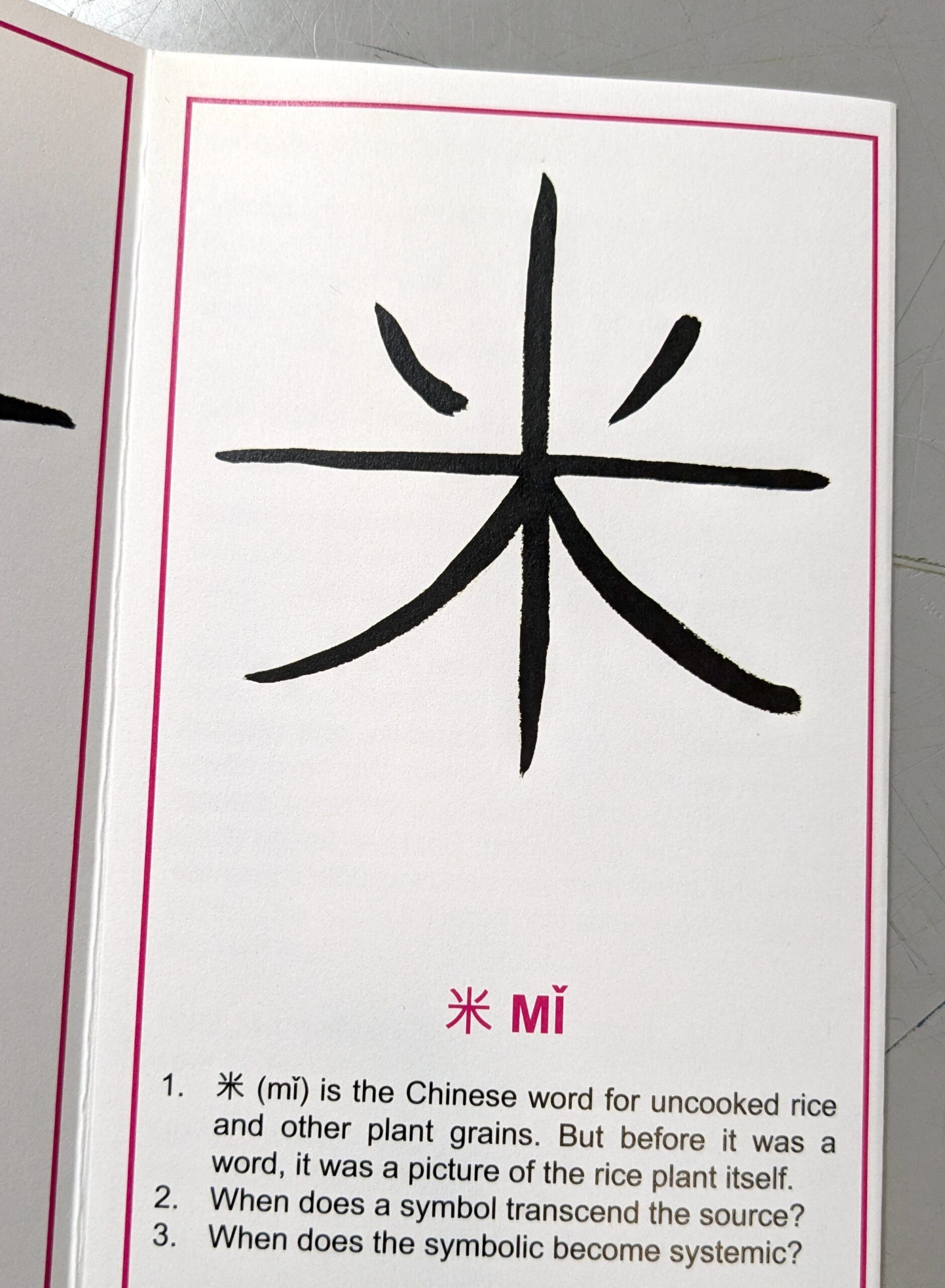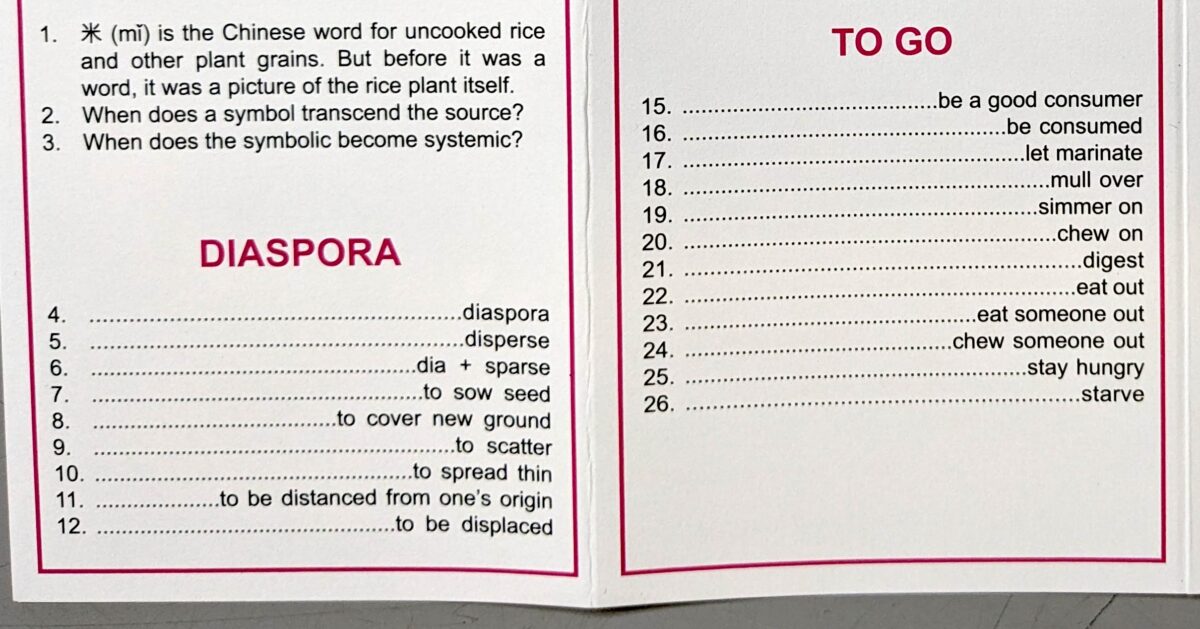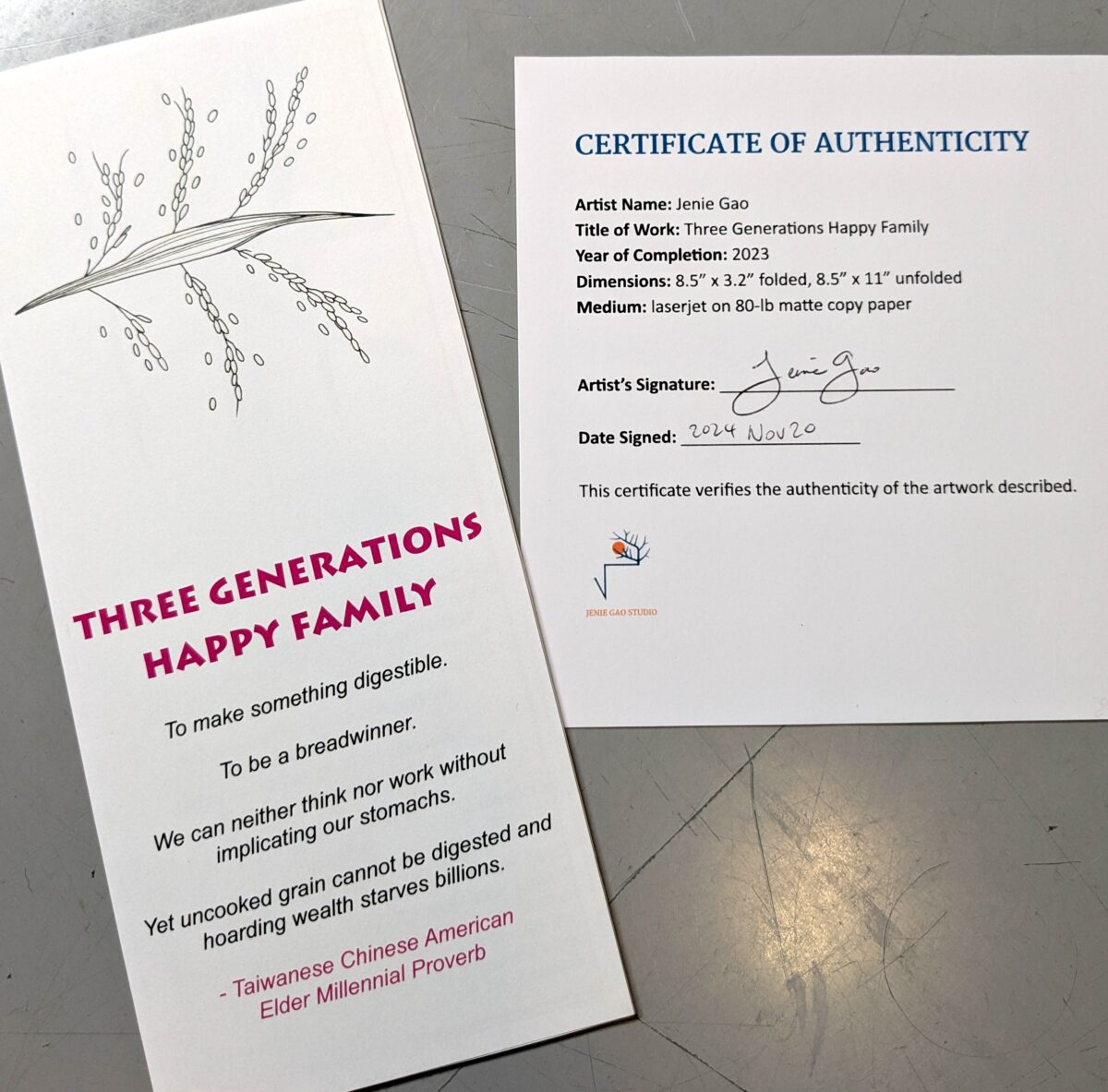
The publication Three Generations Happy Family by Jenie Gao takes the form of a three-section menu to mimic those found in Chinese food restaurants operated by immigrant families like Gao’s. The contents of this one recount in a timeline the family’s origins in Taiwan during rice rationing, and their lives as family restaurant owners in America. Additional items, like the meaning of 米 mǐ (uncooked rice or grains), and poetic entries on diaspora, American food terms, and synonyms for to go, make this single-page publication an enriched and critical reflection on food and immigrant economies. The pamphlet is part of a larger project that forms a gallery installation called 米 mǐ | uncooked rice (2021) which directly considers the inequities of artists’ representation in the art world. Using grains of rice in bowls, the installation demonstrated the way rice overflows in men’s bowl of gallery or museum representation, while there are only a few grains in the bowl representing opportunities for women of colour. As if to remind the viewer of the value of this small scale publication, the piece arrived with a signed Certificate of Authenticity. Economies and measures of equity are themes in Gao’s work and in the way Jenie Gao Studio operates. Promoting “fair pay for labor and intellect, racial and gender equality, and community wellbeing,” the studio’s work aims for, “meaningful systemic change” (quotes from jenie.org). Jenie Gao exchanged Three Generations Happy Family for a copy of Didactics to Postpone the End of the World by Sarah Shamash.


